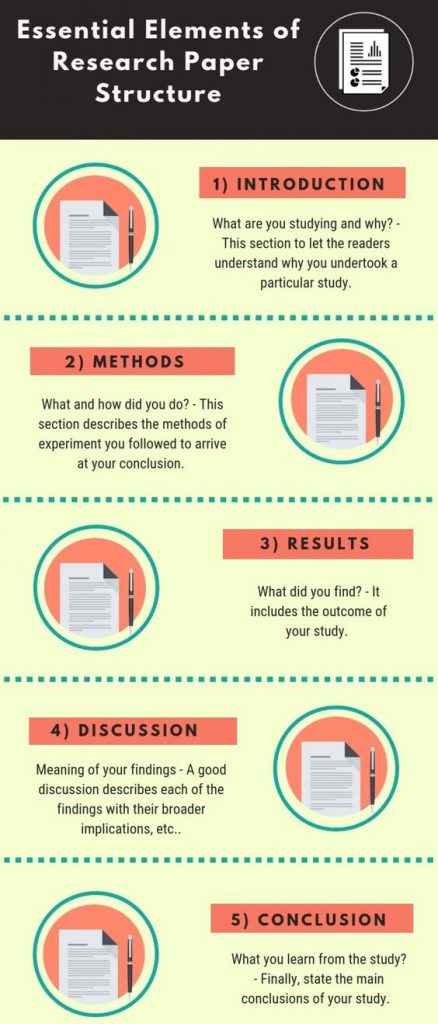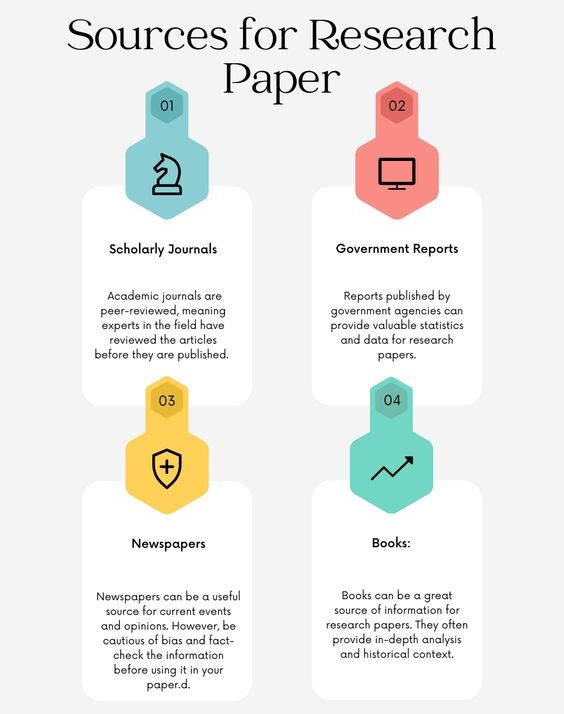The research paper is a common academic assignment in all the levels of higher learning. It gives you the chance to delve deep into a subject, synthesize knowledge, and present your own original insights. But the process of research paper writing can seem daunting, especially for those new to the academic world.
While the process of writing research papers entails several turns and twists, you can still navigate this journey with confidence if you have the right strategies. The following guide offers proven strategies to help you produce a compelling and impactful paper.
What is a Research Paper?
A research paper is a formal, in-depth analysis of a particular topic that presents the results of an investigation. It's a carefully crafted document that follows a specific structure and uses a standardized academic style. Research papers are a staple in almost all courses including nursing, business, law, marketing, psychology, engineering among others.
Here are the key characteristics of a research paper:
Research Paper Structure:

- Introduction: Introduces the topic, states the research question or hypothesis, and provides background information.
- Literature Review: Summarizes and analyzes existing research on the topic, highlighting key findings and identifying gaps in knowledge.
- Methodology: Describes the methods used to conduct the research, including data collection, analysis techniques, and ethical considerations.
- Results: Presents the findings of the research, often using tables, graphs, and figures to illustrate the data.
- Discussion: Interprets the results, discusses their significance, and relates them to existing literature.
- Conclusion: Summarizes the main findings, highlights the contributions of the research, and suggests future research directions.
- References: Provides a list of all sources cited in the paper, using a standardized format (e.g., APA, MLA).
Key Elements:
- Original Research: Research papers should present original findings, not just summarize existing knowledge.
- Evidence-Based: All claims and arguments must be supported by evidence from reliable sources.
- Objectivity: Research papers strive for objectivity and avoid personal biases.
- Clarity and Conciseness: The writing should be clear, concise, and easy to understand.
- Academic Style: Research papers adhere to specific formatting guidelines and citation styles.
Purposes:
Although research papers can play numerous roles, the following are the main reasons for crafting a research paper.
- Advance Knowledge: Research papers contribute to the body of knowledge in a particular field. They can also point to new studies to enhance knowledge in various subjects or areas.
- Solve Problems: Research can address real-world problems and provide practical solutions.
- Inform and Educate: Research papers share new knowledge and insights with others.
Types of Research Papers
- Empirical Research: Based on data collected through experiments, surveys, or observations.
- Theoretical Research: Focuses on developing and testing theories.
- Review Paper: Summarizes and analyzes existing research on a specific topic.
Overall, a research paper is a valuable tool for advancing knowledge, solving problems, and sharing new insights. It requires careful planning, rigorous research, and effective writing skills. Check this link for research paper samples to get you started.
1. Choose a Topic that Ignites Your Passion
The first step in research paper writing is to select a topic that sparks your interest. A well-chosen topic will make the research process more enjoyable and contribute to a more engaging and persuasive paper. Consider your existing knowledge, your intellectual curiosity, and current academic interests. Remember, a good topic should be both manageable in scope and relevant to your field of study.
2. Conduct Thorough Research and Build a Strong Foundation
Once you have a topic, it's time to delve into the world of research. Explore diverse sources – books, scholarly articles, reputable websites, interviews, and primary sources – to build a comprehensive understanding of your chosen subject.

Carefully analyze each source, identifying key arguments, supporting evidence, and potential biases. As you gather information, take detailed notes and organize them in a way that makes sense for your paper's structure.
3. Craft a Compelling Thesis Statement
Your thesis statement is the heart of your research paper. It's a concise and specific declaration of your central argument, the point you aim to prove throughout your paper. A strong thesis statement should be debatable, focusing on a specific aspect of your chosen topic and offering a clear direction for your argument. Take time to refine your thesis, ensuring it accurately reflects the scope and direction of your research.
4. Structure Your Paper for Clarity and Impact
A well-structured paper is essential for a successful research paper writing experience. Organize your ideas into a logical flow, typically using the following structure:
- Introduction: Begin with a captivating hook that grabs the reader's attention, provide context for your topic, and clearly state your thesis statement.
- Body Paragraphs: Each paragraph should focus on a single key idea, offering supporting evidence and analysis from your research. Use clear topic sentences and transitions to guide the reader through your argument.
- Counterarguments: Address potential counterarguments to your thesis, acknowledging opposing viewpoints and demonstrating your understanding of the complexity of the topic.
- Conclusion: Restate your thesis, summarize your main points, and offer a lasting impact by connecting your findings to broader implications or future research directions.
5. Employ Effective Research Paper Writing Techniques
Beyond structure, effective writing techniques are crucial for clear and engaging research papers. Utilize a strong voice and precise language, avoiding jargon and overly complex phrasing. Incorporate evidence effectively, weaving quotations and paraphrases seamlessly into your argument. Use transitions to ensure smooth transitions between ideas, and employ a variety of sentence structures to keep your writing dynamic.
6. Integrate Sources with Skill and Accuracy
Proper source integration is essential for maintaining academic integrity and demonstrating the depth of your research. Use direct quotes sparingly, choosing them strategically to emphasize specific points or highlight influential voices. Paraphrase more frequently, summarizing information in your own words while providing accurate citations. Remember to use a consistent citation style throughout your paper, ensuring all sources are properly credited.
7. Edit and Proofread with Precision
After completing your research paper writing, take time for meticulous editing and proofreading. This crucial step helps eliminate errors in grammar, punctuation, spelling, and clarity. Consider reading your paper aloud to identify any awkward phrasing or inconsistencies. If possible, ask a trusted peer or mentor to review your work for a fresh perspective.
8. Use Effective Tools and Resources
Numerous resources and tools can aid you throughout your research paper writing journey. Online databases like JSTOR and Google Scholar offer access to a vast collection of academic articles. Writing software like Grammarly and ProWritingAid can help with grammar and style checks. Using these resources effectively can enhance your research, writing, and overall productivity.
9. Seek Feedback and Engage with Your Audience
Don't hesitate to seek feedback from your peers, professors, or writing centers. Engaging with others allows for valuable insights and perspectives on your research paper writing process. Consider presenting your work in informal settings like study groups or workshops. Sharing your research and receiving feedback helps refine your ideas, improve your communication skills, and cultivate a sense of academic community.
10. Stay Focused and Manage Your Time
Research paper writing requires focus and efficient time management. Set realistic deadlines and break down the writing process into manageable tasks. Allocate sufficient time for research, drafting, revising, and editing. Avoid procrastination by establishing a dedicated writing space and setting aside specific time slots for working on your paper.
11. Embrace the Revision Process
Writing is a process of refinement, not perfection. Embrace the revision process, acknowledging that your initial draft is just a starting point. Don't be afraid to rework your ideas, reorganize your structure, and refine your language.
12. Don't Be Afraid to Get Help
If you struggle with research paper writing, don't hesitate to seek assistance. Your professors, teaching assistants, librarians, and writing center staff are valuable resources. They can offer guidance on research strategies, writing techniques, and formatting guidelines.
13. Take Breaks and Prioritize Self-Care
While research paper writing is demanding, remember to prioritize self-care. Take breaks to recharge, engage in activities you enjoy, and ensure you're getting enough sleep. A well-rested mind is essential for productive writing and effective problem-solving.

14. Celebrate Your Achievements
Finally, celebrate your achievements! Completing a research paper is a significant accomplishment. Recognize your efforts, acknowledge your progress, and reward yourself for your hard work.
Research paper writing can be a challenging exercise but it also comes with greater rewards. Applying the strategies discussed above can help you to navigate this academic journey with confidence, producing a high-quality research paper that reflects your knowledge, critical thinking, and intellectual curiosity. Remember, the key to success lies in careful planning, thorough research, effective writing techniques, and a commitment to continuous improvement. Embrace the process, stay focused, and celebrate your achievements.
Get the Best Research Paper Writing Help
The journey of research paper writing is a testament to the learner’s academic growth and the pursuit of intellectual discovery. Beyond the strategies that we have discussed above, you should also get professional help with research paper writing for success. At exemplarydissertations, we are the experts that you should engage for professional research paper writing services. We guarantee top notch quality research papers, customized to your specific instructions and goals.